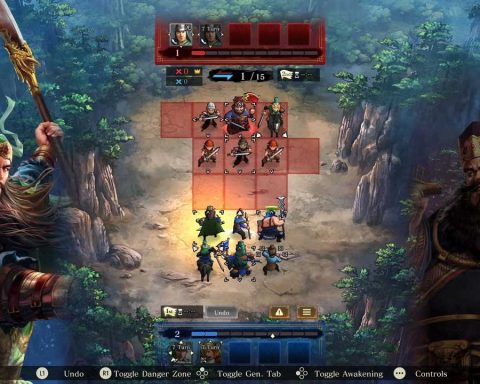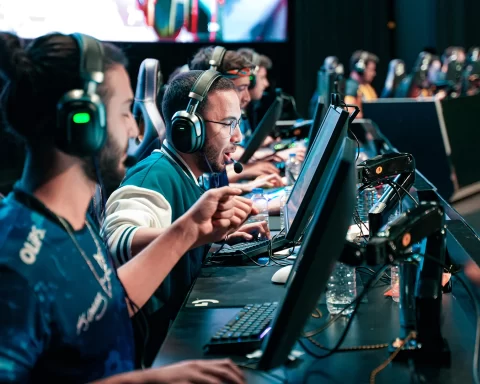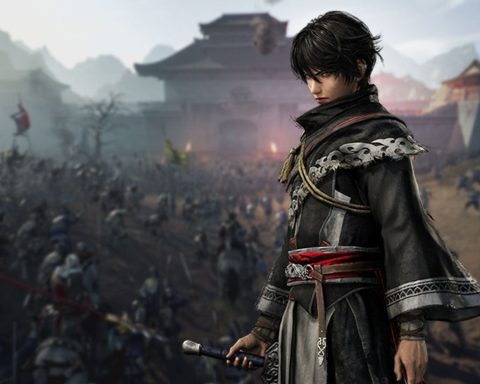 Review by Jedediah H.
Review by Jedediah H.
Have you ever seen a goofy Mel Brooks’ movie from the 90’s by the name Life Stinks? I was on the wrong side of seven years of age the first time I had the privilege, and it left a bit of an existential impression on my absorbent little mind.
As my short version of the story goes, the lead, a megalomaniac billionaire, played by Mel Brooks, who shows about as much concern for others and the environment as Godzilla on psychedelics, bets a rival businessman that he can survive for 30 days, destitute and sans hairpiece, homeless on the city streets. At the film’s climax, even though he wins the bet, he finds his fortune has been pilfered. So, incredulous and dispirited, he has a mental meltdown, chanting until being comically drugged unconscious, “Life stinks. Life stinks. LIFE STINK!”
As per optimistic Hollywood conventions, Mel gets his fortune back, marries a ballet dancing pauper, and presumably enjoys a life of never wanting for a servant to wax his chest with precious stones found only at the summit of Mt. Everest. But his downfall really stuck with me. To be pampered and revered for the entirety of your life – never even being introduced to the concept of compromise – only to lose everything you’ve ever inherited and worked for in the flex of a corrupt bicep. Could I or any of us ever possibly sympathise with such colossal personal tragedy?
Natural Doctrine seems up to the task of emulating the emotions that come with such a disaster. Fundamentally, this is a rock-bottom simulator; any curious and naïve gamer who wishes to obtain the sense of anger, hopelessness, and turmoil that comes complimentary with falling from grace in a manner like Mel did simply needs to play 20 to 40 minutes of the game’s demanding post-opening stages. You offer everything you have. Natural Doctrine’s enemies, both pathetic and impressive looking, blast your weakest character dead with a fireball or a two-handed sword slash, and take it all away.
 |
| “Just let them try to take this impeccably quaffed hair, though.” |
But if being humiliated and demoralised by in-game defeat is synonymous to Mel’s downfall, achieving victory in battle is a feeling equivalent to earning a billion dollars just for punching your life-long nemesis in the face. You feel validated, relieved, and empowered, and for SRPG fans who embrace calculated, skill-based challenges with their shirts suggestively unbuttoned, these emotions, combined with the patience and preciseness it takes to manipulate the initially unclear yet ultimately brilliant battle mechanics, make Natural Doctrine a damn near obligatory gaming experience for genre enthusiasts.
The story and characters are nothing to orchestrate a rooftop cheer over, but they’re both really not that bad either. You issue orders to a troop of characters known as Bergman, salvagers who enter mines to, as far as I can tell, commit genocide against a race of generic gremlin-like goblins for the purpose of harvesting/ borrowing/ stealing Pluton, a source of magic that is toxic to humans unless first refined by said goblins, who are immune to its adverse effects. On one of your daily cave dwelling expeditions, you come face-to-thorax with a race of massive voracious insects that give you no choice but to tighten your boot straps and flee for the world map. From here, you gallivant across the land, defending your life from those who seek revenge for [silly spoilers] as your quest to figure out the origin of the bugs is impeded by the likes of lizard men and gyrating skull daddies.
Okay, so the story and characters are kind of lame at the onset; however, as you experiment and become familiar with each of their strengths on the battlefield, you develop an unbreakable rapport with and amongst them (despite wanting to back-break each of them for squealing “Ooooo looook, a door!” every time your cursor floats over a locked passageway), which comes in time with mastery of the battle system.
 |
| That Minotaur may have bulbous pectorals, but he’s actually one of the easiest of foes. |
Skirmishes take place on isometric maps whereon units have a limited number of moves within grids and can utilise characteristics of the environment, such as elevation, pillars, and walls, to gain offensive and defensive advantages. Now, success with said battle system is dictated by the willingness to learn and become proficient with two primary tools: the initiative and link systems. The initiative system, the order of action for every character and enemy in the area, which is showcased by a bar atop the screen, is crucial to planning your own moves as well as forecasting that of the enemies’ during each round. Being a little more fun to explain, the link system allows characters other than the one who initiated an action to follow-up with an action of their own (as long as the initiated and subsequent actions meet certain requirements), even if they already used up their turn for the current round. Simply put, characters gain extra turns by linking with the initiator of the action.
The brilliance of these systems operating in tandem is that although linking actions will greatly improve your characters’ attack parameters, if the order of actions from the initiative bar isn’t taken into account, and if your characters aren’t strategically grouped in positions that will enable a proper link, you’ll become an adopted brother of the Game Over screen. No action is insignificant, and each one must be contemplated with an amount of focus that can be downright taxing on the problem solving portions of your cerebral cortex, especially when you consider that enemies can dish it out even more ferociously than they can take it, employing morale-stomping link attacks of their own on the weakest member of your team while he’s at his most vulnerable (honestly, unless he’s positioned defensively, he’s always at his most vulnerable).
 |
| Geoff is far from the weakest, but even he has trouble with these reptilian rascals. |
This creates a spirit of urgency and survival that most games, even those in the Souls franchise, don’t wish or attempt to match, for you’re taking on squads that are nothing less than insurmountable. Yet when you do develop an effective stratagem and overcome your overpowered opposition, it’s hard to regret the punishment it took to achieve the seemingly impossible. Victory is always glorious and mostly worthwhile.
But victory would taste even sweeter and go down even smoother if not for a streak of detrimental omissions and design choices. I wouldn’t say that these flaws make the game more difficult, but they make enduring the difficulty more laborious than if these issues were alleviated. For one, if you require an in depth tutorial for all of the most advanced – hell, even the simplest – mechanics, good luck, my friend! You’ll find no such accommodation here. Instead, what you get is a smaller summary of a slightly larger summary of rules and techniques, which can be found in the option menu and on the brief loading screens, tips that tease rather than invite you to experiment with complexities of the battle systems’ potential. That being said, I relish in learning and adapting of my own volition, so this really wasn’t a problem for me. But if I were a player who did appreciate accurate tutorials, I’d probably sketch a diagram of every character’s face just so I could physically punch them in their anatomically incorrect foreheads.
Another issue, one that may seem trivial but nearly drove me out of the house and into the nearest drunken-boxing rink: the inability to exit a stage and return to the world map after being chopped to my knees by a lizard man wielding blunt machismo. The world map is the only area where you can change equipment and allocate skills. You would think that in a game largely dependent on character skill trees that permit infinite allocation of abilities and perks for the sake of tuning your troop’s attributes to match the current onslaught, instant world map access would be a given. It isn’t. You have to exit all the way back to the title screen and reload your save file just to return there. And with the amount of death you’ll face, and the experimental customisation you’ll want to engage in as a result, it’s a pain in the hyper-extended neck.
 |
| Instead of this… |
 |
| You get THIS! |
Look, I’m not going to put on a purple astronaut helmet or run half-speed into a wall of cake mix or perform any other act of subterfuge that may trick you into forgetting that Natural Doctrine is one of the most unforgiving virtual experiences currently available in this or any possible dimension. It’s like that university professor who wouldn’t accept your term paper three minutes late despite the fact that your dog body slammed your cat from the roof that morning, placing them both in sad but cute comas. It just doesn’t give a damn. Yet, if you have patience, get a kick out of learning through experimentation, and receive a rush when accomplishing what seems satirically impossible, you may appreciate Natural Doctrine’s unyielding difficulty, and certainly gain a feeling of unrivalled empowerment that’s associated with overcoming it.
– Jedediah H.
News Editor
Laugh at my perfectly quaffed hair on Twitter
Watch me overwhelm the skull daddies at: twitch.tv/the_major1219







